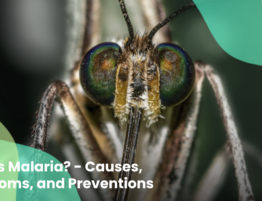
Since 2019, Every November 12 has been recognized as a world pneumonia day. The purpose is to make us fully aware of how pneumonia has taken its toll as a global threat that is responsible for the major death of millions of people of all ages. Today, Puri Medical Clinic answers some of the concerns circulating on the worldwide media concerning pneumonia facts from the main cause, the early signs, and many more. Read to find out in the following.
Pneumonia Facts No. 1 – What is the main cause of pneumonia?
Our pneumonia facts no. 1 talks about the various causes of pneumonia. It may have been bacteria, a certain kind of virus, and even fungi. One of these organisms provokes pneumonia by infecting the lungs (might it be one of your lungs or both). The organisms trigger inflammation to your air sacs, filling them in with pus that those with the disease suffer from labored breathing and unbearable cough.
Pneumonia Facts No. 2 – Does pneumonia cause death? Who are at risk?
In general, mild to serious levels of pneumonia can happen to everyone from children below the age of 2 years old to adults over 65 years old. People with weak immunity and chronic diseases who are going through chemotherapy, asthma, heart diseases, diabetes, and an organ transplant, moreover, can also increase their risk of having severe pneumonia infection.
In some cases, smoking addicts, COVID-19 patients, and people with high exposure to air pollutants, unpleasant living conditions, long stay at a hospital, and the use of ventilators are also prone to catch the disease. Although recoverable, the symptoms are things people often neglect. They would often be too late to get the proper care. Furthermore, pneumonia is very life-threatening to people with chronic diseases since it worsens the preexisting condition of the patients.
Pneumonia Facts No.3 – What are the early signs of pneumonia?
How does pneumonia usually start? The mildest symptoms of pneumonia are cough, flu, and cold. They are so common that are often mistaken for regular seasonal diseases but in pneumonia patients, they recover very slowly. The early signs of pneumonia may cover:
- Having chest discomfort every time you cough and breath
- Feeling tired
- A sudden urge to puke or dysentery
- Difficult breathing and loss of appetite
- Your body is getting high at temperature, sweaty, but can also at the same time feel cold.
The infection may not be apparent so much in infants, but several warning signs that you should take the precaution of are cough with phlegm, shortness of breath or rapid breathing, trouble eating, and they may look very exhausted with an indication of throw-up. While adults might experience disarray of thought and cold under normal body temperature.
Pneumonia Facts No.4 – What are the 4 stages of pneumonia?
According to the area pneumonia develops, the types comprise of bronchopneumonia and lobar pneumonia. What distinguishes both of them? Bronchopneumonia affects the bronchus areas that connect your trachea to your lungs. On the other hand, lobar pneumonia afflicts the lobes of your lungs due to the invasion of bacteria. There are four stages of lobar pneumonia that we include on our pneumonia facts no.4:
Stage 1 – Congestion
The air sacs and the lung tissues swell and are loaded with bacteria within 24 hours.
Stage 2 – Red Hepatization
The further infection stage of lobar pneumonia happens after days 2 or 3 and might last up to 4 days. At this point, red and white blood cells have penetrated the fluid that contains the bacteria thus, congesting the air passageways of the lungs. They will look very red and firm.
Stage 3 – Grey Hepatization
The color of the lungs is turning to grayish or yellowish and still firm looking because the red blood cells have started to disintegrate. It happens around days 4 to 6 and might carry on to 8 days. Macrophages deriving from the white blood cells also begin to develop.
Stage 4 – Resolution
The macrophages are ready to fight the infection that will result in cough to clear out the fluid in the lungs around days 8 to 10. Swelling disappears and the lungs gradually recover to their normal function.
Pneumonia Facts No. 5 – How to prevent pneumonia?
Pneumonia can be deadly and although treatable, practicing the preventive metrics on our pneumonia facts no. 5 below will be very useful in order to prevent yourself from catching the disease, such as:
Taking jabs of pneumonia and flu vaccine as early as the age of 2. You also need to make sure you have a complete vaccine of Covid-19. To gain more understanding regarding the vaccination process, please ask for the guidelines at a nearby clinic. It is also a must to apply good personal hygiene and to take care more of your lungs by avoiding smoking and engaging in a healthy lifestyle like not to mess up with your sleeping and eating schedule, also maintain your exercise routine.
Read More on Puri Tips: Before You Are Covid Vaccinated
Pneumonia Facts No.6 – Can pneumonia go away on its own?
Yes, it certainly can only when the case is mild. All in all, the key to handling any type of pneumonia is to tackle down the symptoms such as: combating the fever by taking proper medication, dispersing the phlegm by avoiding dehydration through drinking lukewarm water to break up the clogging of the airways. For terrible cases of pneumonia, the patients might have to be hospitalized, receive IV and oxygen therapy sessions, and be prescribed antibiotics.








